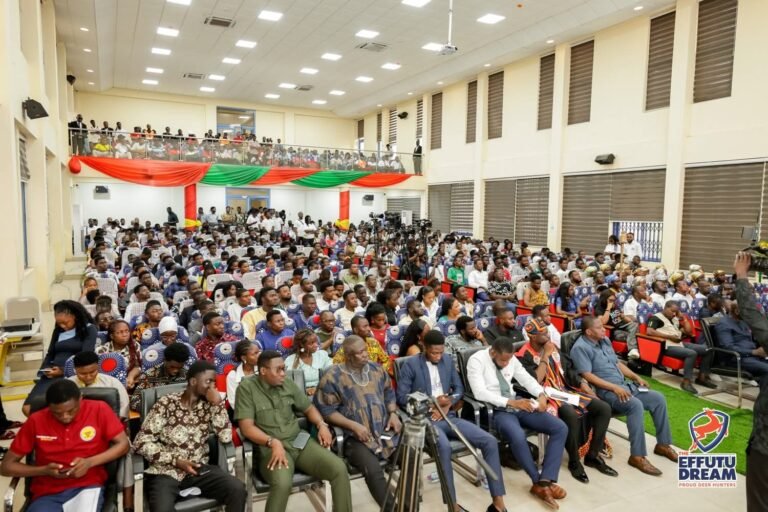
President Akufo-Addo
A person, family, community, organisation or nation losing hope, and throwing hands in despair, is the worst incident that history can record.
That is why humanity has been able to survive conflicts, famines, pandemics and disasters, which had over time combined to wreck cities, nations, continents and, now, the entire globe through a pandemic.
Unfortunately, with China again being caught in COVID-19, there are no indications that the pandemic is over, just as it appears that the Russian-Ukraine war will end today.
With global warming adding to the woes in floods and fires, it becomes imperative for the global community to initiate global partnerships in restructuring global economies, including rebuilding Ukraine.
Global efforts
But it has not been all gloom because, in the face of the pandemic, the global community is united in fighting the pandemic through tracing, testing and treating cases in limiting its disastrous effects on economies.
Since then, ongoing efforts have been made in sustaining the modest gains through creation of vaccines, and now the involvement of developing economies in producing vaccines, as part of the global effort to grow all economies under relevant partnerships.
Thankfully, that is not the end of the story as Presidents, Finance Ministers and Health Ministers meet periodically to unify strategies in effectively fighting the twin evil inflicted on global economies.
All these efforts and initiatives are intended to encourage citizens to have hope, and continue doing what they have to do in supporting government to deliver in improving individual lives and livelihoods.
Government gesture
To ameliorate the social consequences of the pandemic and Russian-Ukraine conflict, most nations resorted to cost-cutting measures, including adjusting national budgets downwards.
Our government announced a couple of weeks ago that it was cutting expenditure by about 30 percent. That was part of the efforts aimed at fiscal restructuring and the strengthening of the private sector to deliver better in terms of productivity and job creation.
The fact, however, is that these efforts and initiatives are refusing to deal decisively with the current situation in which food, fuel and transport costs are inflicting hardship on homes, families and vulnerable communities.
More stringent measures
While it is commendable on the part of government to cut costs by as much as 30 percent, in attempting to manage the situation, it is turning out that government must do a bit more. In this case, some savings can be made to generate relief for hard-pressed segments of the population.
Particularly, in the area of food security and transport, this is imperative because there is a link between increasing transport fares and food costs. In addition, that situation certainly has inherent inflationary tendencies that must be avoided; and that certainly calls for more stringent measures.
Individual, collective innovation
With prices of cereals and staples increasing by the week, it is the opinion of the Daily Statesman that government also puts in place measures to reduce food imports, including rice, which we conveniently produce in Ghana and the sub-region.
Rice and poultry importation, and its effect on our foreign exchange earnings, have been a long-standing conversation. We believe this is time to review our appetite, particularly for poultry and rice imports.
While we believe that trade has intrinsic productive activity that generates jobs, we believe there is the need also to look at the priorities and our current circumstances – with bodies like GUTA innovating partnerships that also make them basic processers, instead of our merchants here oiling Asian and European economies.
Responsible burden-sharing
But there are also ways that ordinary citizens can surmount the socio-economic hardships facing them today, including enhanced productivity, particularly for those in the agricultural sector.
We have, for instance, failed to look at basic processing as part of productive activity in adding value to foodstuffs like cassava, by making it into bread or biscuit.
Yes, we are certainly facing hard times, and governments must, therefore, do more. While it may not be enough, it sends signals that governments care.
As they do that, however, we as citizens naturally have a responsibility to innovate if we must collectively surmount the situation and mutually benefit.







